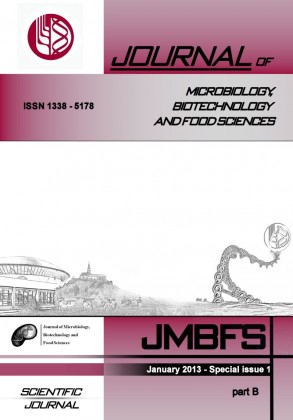PHYSIOLOGICAL AND MEDICAL EFFECTS OF PLANT FLAVONOID QUERCETIN
Keywords:
quercetin, oxidation, proliferation, inflammation, cancer, cardiovascular diseasesAbstract
Flavonoid compounds in vegetable-based diets bring a significant contribution to the role of fruits and vegetables as health-promoting foods. This review summarizes the available data concerning physiological and therapeutical effect of plan flavonoid quercetin. Quercetin has a number of beneficial influence on health because of their antioxidant, anti-inflammatory, anti-proliferative, anti-carcinogenic and anti-diabetes properties. Effects of quercetin have been explained by its interference with cellular enzymes, receptors, transporters and signal transduction systems. Despite the available data reviewed here, the targets, effects, absorption, metabolism and areas of practical application of quercetin are still poorly understood, therefore further studies in this areas are required.Downloads
Download data is not yet available.
Downloads
Published
2013-02-01
How to Cite
Å tochmaľová, A., Sirotkin, A., Kádasi, A., & Alexa, R. (2013). PHYSIOLOGICAL AND MEDICAL EFFECTS OF PLANT FLAVONOID QUERCETIN. Journal of Microbiology, Biotechnology and Food Sciences, 2(special issue 1), 1915–1926. Retrieved from https://office2.jmbfs.org/index.php/JMBFS/article/view/7287
Issue
Section
Biotechnology
License
Copyright (c) 2013 Aneta Štochmaľová, Alexander Sirotkin, Attila Kádasi, Richard Alexa

This work is licensed under a Creative Commons Attribution 4.0 International License.
All papers published in the Journal of Microbiology, Biotechnology and Food Sciences are published under a CC-BY licence (CC-BY 4.0). Published materials can be shared (copy and redistribute the material in any medium or format) and adapted (remix, transform, and build upon the material for any purpose, even commercially) with specifying the author(s).

